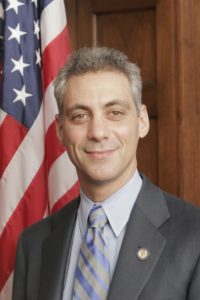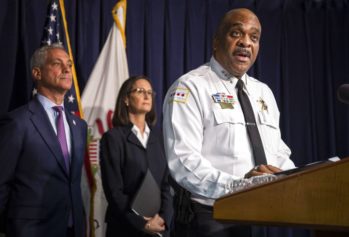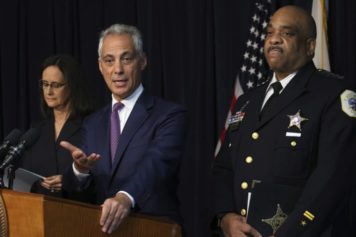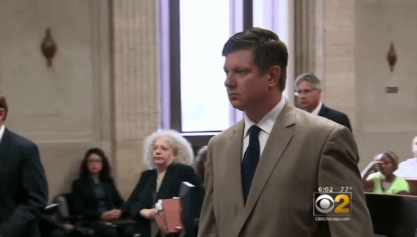
Rahm Emanuel. Official Photo
The news comes after a damaging task force report uncovered the long history of racial bigotry and excessive force present in the Chicago Police Department. The department and Emanuel have continued to face harsh criticism since the city released video of white Chicago police officer Jason Van Dyke shooting Black, 17-year-old Laquan McDonald 16 times in December 2015 — 13 months after the incident occurred.
A Chicago Sun-Times report found the mayor and CPD had joined forces to secretly monitor Black activist organizations, including Black Lives Matter, local churches and philanthropic organizations.
“The linkage between racism and CPD did not just bubble up in the aftermath of the release of the McDonald video. Racism and maltreatment at the hands of the police have been consistent complaints from communities of color for decades,” the report said.
The mayor-appointed Task Force on Policy Accountability exposed what critics suspected: a culture of cover-ups on the part of police officials, including false arrests, coerced confessions and wrongful convictions.
“These events and others mark a long, sad history of death, false imprisonment, physical and verbal abuse and general discontent about police actions in neighborhoods of color.”
According to the task force report, African-Americans accounted for 74 percent of the city’s 404 police shootings between 2008 and 2015. African-Americans are approximately one-third of the city’s total population.
The task force issued a slew of recommendations for reform last month. Among them, a brand new oversight committee.
“Every stage of investigations and discipline is plagued by serious structural and procedural flaws that make real accountability nearly impossible,” the report said. The IPRA was seriously under-sourced, leading some complaints to be drawn out interminably and others left uninvestigated altogether. Some officers who spoke up about misconduct were fired.
Emanuel discussed the proposed changes in an op-ed for the Sun-Times.
“Five months ago, I pledged to the residents of Chicago that we would do whatever it takes to rebuild public trust and restore accountability in the police department,” he wrote. “My goal is to bring safety to every community though building trust in our police department. That requires creating a new system for police accountability and oversight.”
The twice-elected mayor praised IPRA leader Sharon Fairley, crediting her leadership with transforming and advancing the agency in recent months. Still, he admits, the overhaul is necessary.
“It is clear that a totally new agency is required to rebuild trust in investigations of officer-involved shootings and the most serious allegations of police misconduct.”
Emanuel said the reforms would be based on the task force’s recommendations as well as information gathered from talks with municipal and community leaders, the U.S. Department of Justice and other experts in police accountability.
The new agency’s development was the first of a three-step process he outlined in the opinion essay.
Secondly, he wrote, the city would instate a new Public Safety Inspector General “to audit and monitor policing in Chicago.” The IG will audit the police department and investigations by the new oversight agency.
“The IG’s goal will be to identify and address emerging problems and trends in order to prevent acts of abuse from occurring in the first place. The office will be led by someone with impeccable credentials and credibility.”
And finally, officials would create a new Community Safety Oversight Board made up of Chicago residents to manage the city’s entire accountability system. The board will oversee reporting from the Police Department, the Police Review Board, the new Public Safety Inspector General and new independent civilian investigation agency. All meetings will be open to the public. He said the new board would give voice to the people whose lives are directly impacted by police on a daily basis and serve as a forum for police to share information and address public concerns.
“Public dialogue is essential to building a common understanding of how best to keep our communities safe,” Emanuel wrote.
He said the administration would ultimately be judged by a timely, effective response to concerns.
“We will be judged by whether our actions truly measure up to the demands of the moment. I am confident that by creating this new structure and committing to this comprehensive plan, Chicago will be better off because we are facing up to these difficult challenges and we are doing so together,” Emanuel concluded.


